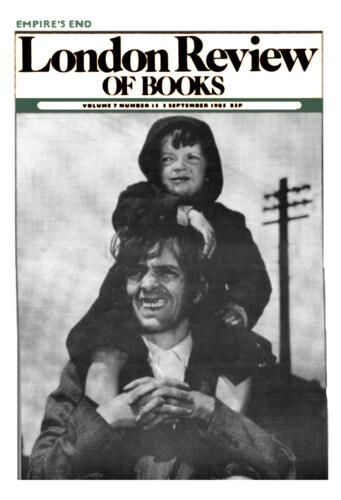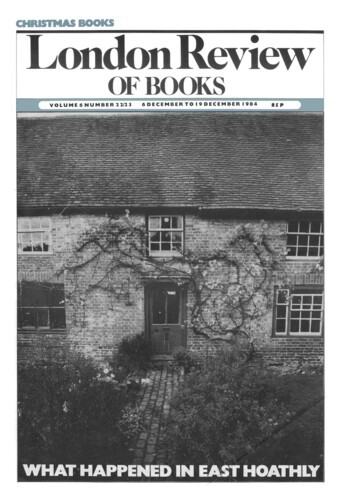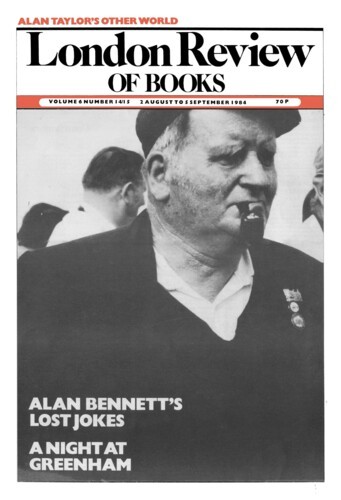Two Sad Russians
Walter Kendrick, 5 September 1985
On 1 June 1948, Edmund Wilson sent to Vladimir Nabokov a copy of Volume VI of Havelock Ellis’s Studies in the Psychology of Sex, French edition. What had caught Wilson’s attention – and would surely beguile his friend – was the ‘Confession Sexuelle d’un Russe du Sud’, a pseudonymous hundred-page memoir that for more than two decades had lurked unnoticed among the appendices to Ellis’s forgotten book. Nabokov’s response was enthusiastic. ‘I enjoyed the Russian’s love-life hugely,’ he wrote on 10 June. ‘It is wonderfully funny. As a boy, he seems to have been quite extraordinarily lucky in coming across girls with unusually rapid and rich reactions. The end is rather bathetic.’



